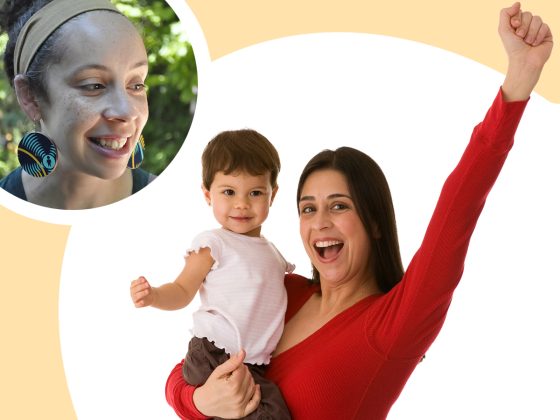
Raising an Upstander
An article on ways to develop “upstandership” in young children.
An upstander is someone who uses their voice and their actions to help others. Upstanders make their communities—and the world—better for everyone. Being an upstander means standing side by side with others to build a better world together. For children that have directly experienced racism, being an upstander also means standing tall and proud within ourselves and our own identities (whether that’s our racial or ethnic identities, or in any of the many ways we all have of describing and understanding ourselves).
Having the inner confidence and strength of an upstander expands into a healthy way of being in the world. It is an anchor that keeps us steady when the world is full of waves. Here are some ways you might help children develop the three types of “upstandership”:
Help them stand tall in themselves. Affirm children’s identities. Build their confidence and sense of self-worth by pointing out and celebrating their uniqueness… inside and out! Remind them of their special talents, and explain that everyone has their own amazing qualities and everyone deserves to feel proud inside. In addition to telling children “I’m proud of you,” use specific moments to point out that they should be proud of themselves. Remind them that their skin is beautiful, and that they are perfect as they are. Tell them they are “strong in their skin”!
Help them stick up for others. Let children see you speaking up or taking action when you notice something unfair. Talk about how you feel about it, and model respectful ways of communicating and standing up for others. When children talk about a conflict they witnessed, such as a peer being teased or excluded at school, ask questions: What did they think? What did they say or do (or not say or do), and why? What did others do or not do? What did they do? What might they do if it happens again? Offer language they can use in the future: “I don’t like when you say/do that,” “That’s not true,” “That’s unfair and it’s not okay,” “That’s not how we should treat others,” “I don’t agree,” and so on.
Help them stand together with others to build a better world. When children notice ways in which our world could use improvement, praise their observations and insight, and talk about ways others may be already working to change things. Remind children that many people care about the same things they do, and that we can work together to make the world a kinder, safer, fairer place for everyone.
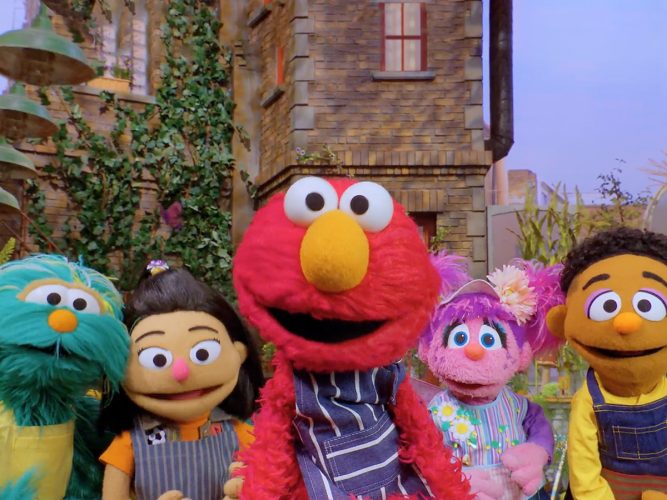
Community Song
A video about community.
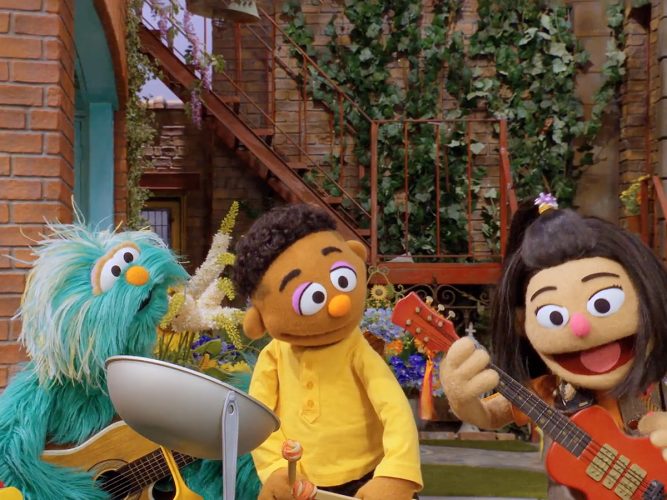
Musical Show & Share
A video about coming together to create something beautiful.
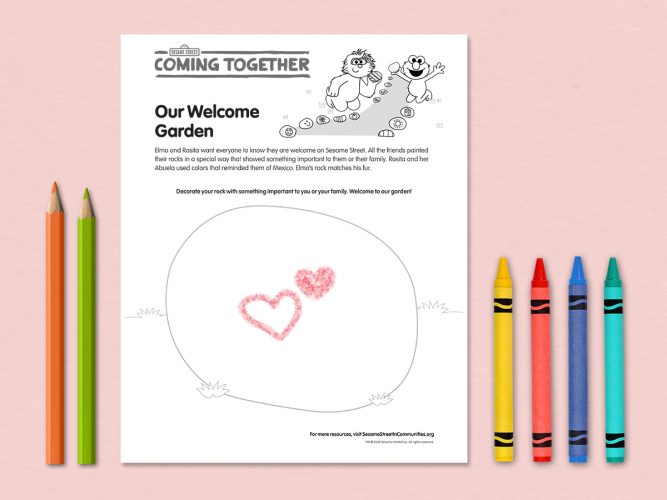
Our Welcome Garden
A printable page about a community rock garden.
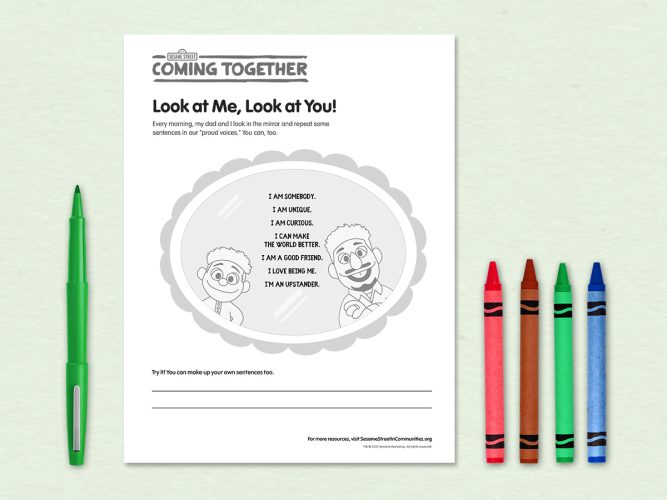
Look at Me, Look at You!
A printable page with parent-child affirmations.
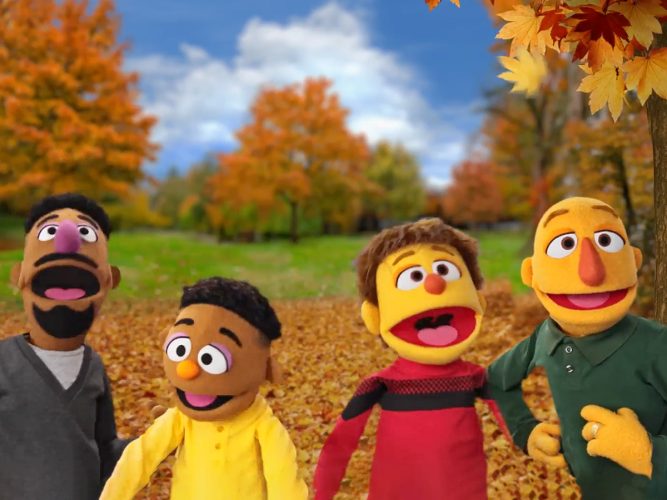
The Wiggle-Jiggle Game
A video about a getting-to-know-you game that helps kids appreciate similarities and differences.
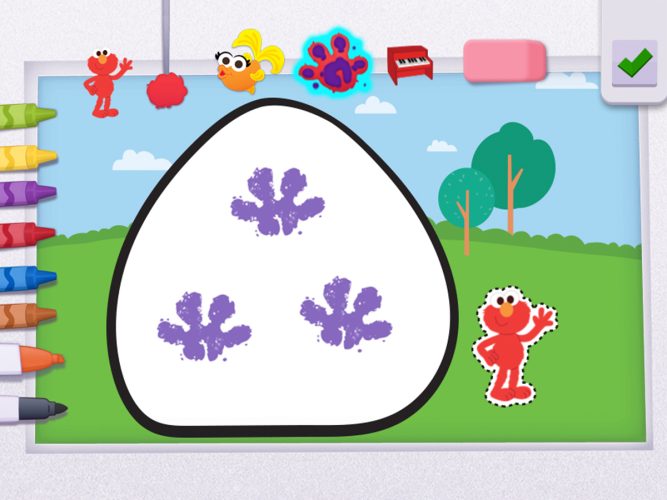
Welcome to Our Garden
An interactive game in which children add rocks to the Sesame Street community garden.
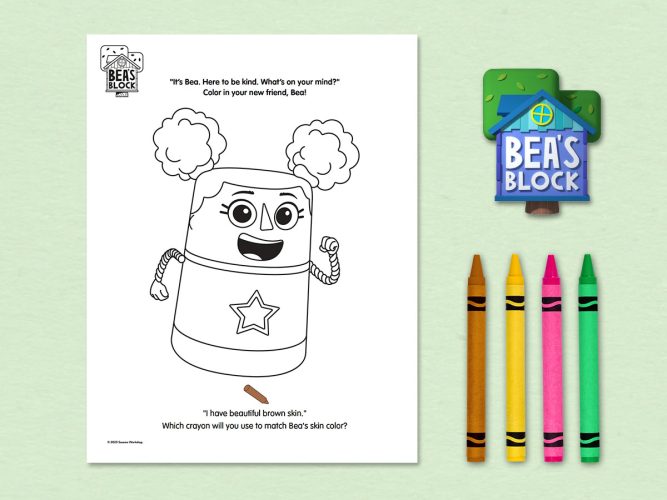
Bea’s Block Kindness Adventure Color & Activity Guide
Activities and coloring pages for children that celebrate kindness.
